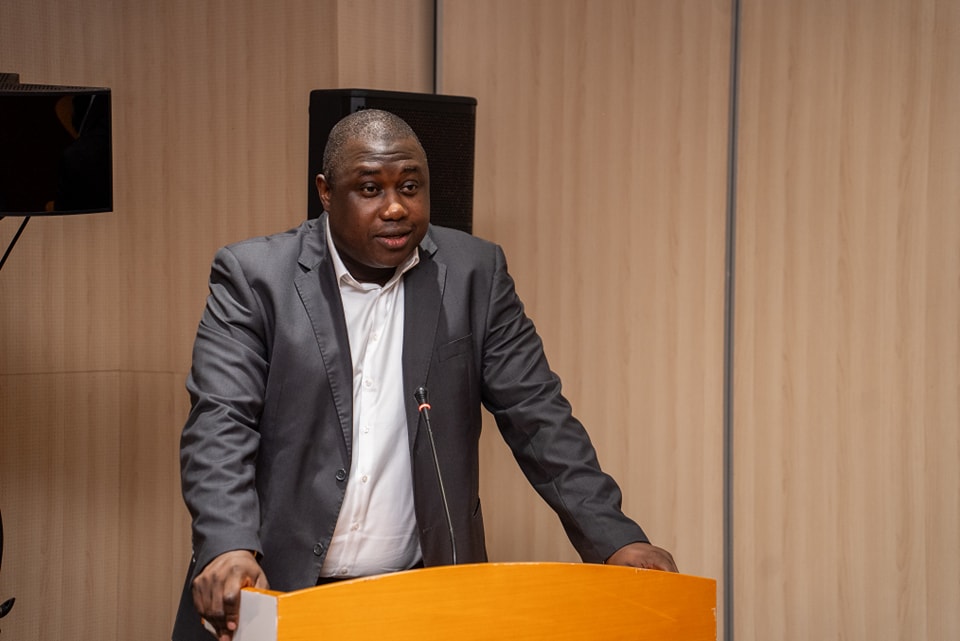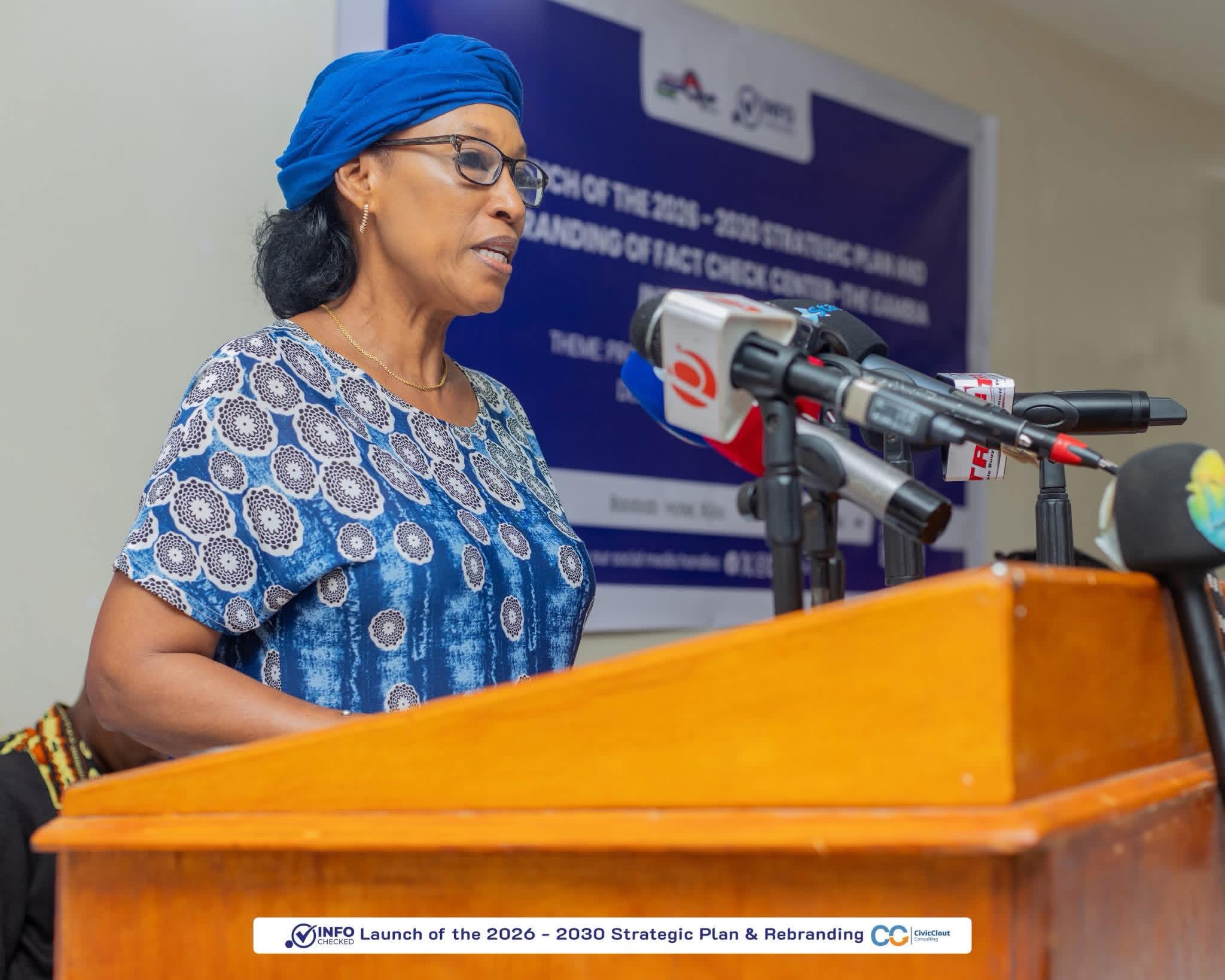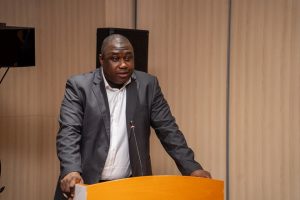Gambiaj.com – (BANJUL, The Gambia) – The Chairperson of the Access to Information (ATI) Commission, Neneh MacDouall-Gaye, has called for collective action against fake news and misinformation as The Gambia prepares for the 2026 Presidential Elections.
Speaking at the launch of Info-Checked’s Strategic Plan 2026–2030, MacDouall-Gaye warned that the spread of falsehoods, hate speech, and manipulated content poses a serious threat to national unity and democracy.
“The spread of falsehoods, hate speech, or manipulated content can erode trust, incite division, and weaken democracy. We cannot allow that to happen. As we approach the elections, the call for verified information becomes not just a professional obligation but a patriotic duty,” she told the gathering.
The ATI Commission Chair stressed that the upcoming elections would test not only The Gambia’s political maturity but also the integrity of its information ecosystem.
She noted that in the months leading to the polls, citizens will rely heavily on information from the media, political actors, and digital platforms to make decisions that shape the nation’s future. For that reason, she said, it is imperative that the information they receive is accurate, undiluted, and responsibly shared.
MacDouall-Gaye urged collaboration among Info-Checked, the ATI Commission, the media, civil society, and other stakeholders to ensure that “the truth remains the loudest voice in the public space.”
Addressing the influence of technology on information, she observed that the rapid rise of Artificial Intelligence (AI) presents both opportunities and risks.
“AI can be a force for good, helping to automate verification, detect misinformation, and expand access to knowledge. But it can also be a double-edged sword, capable of generating deepfakes, distorting facts, and amplifying harmful narratives,” she cautioned.
She reaffirmed the Commission’s commitment to promoting digital literacy, ethical technology use, and strong policy frameworks to safeguard truth and integrity in the age of AI.
“We must ensure that innovation strengthens—not undermines—the public’s right to accurate information,” she said.
MacDouall-Gaye emphasized that protecting truth is a shared responsibility, stating that no single institution can combat misinformation alone.
She called on governments to remain transparent, the media to be ethical, citizens to stay vigilant, and institutions like Info-Checked to remain independent and fearless in their pursuit of accuracy.
“Let us remember that information integrity protects us,” she said.
Access to Information: A Cornerstone of Democracy
MacDouall-Gaye reaffirmed that the right to access information is fundamental to democracy, noting that it is “not a privilege but a right of every citizen.”
She explained that the enactment of the Access to Information Act (2021) gave life to this constitutional right and established the ATI Commission to ensure that citizens can effectively seek, receive, and use information held by public institutions.
“This legislation empowers citizens to make informed decisions, participate meaningfully in governance, and hold those in authority accountable,” she said.
She further noted that access to information and fact-checking are “two sides of the same coin,” urging fact-checkers to ensure that what circulates in the public space is accurate and verifiable.
According to her, the work of fact-checkers is a crucial extension of the broader information rights ecosystem, complementing the Commission’s efforts to promote transparency, strengthen governance, and build public trust.
“Information is the oxygen of democracy. When it is polluted, our governance suffers; when it is withheld, our accountability weakens; and when it is distorted, our citizens are misled,” MacDouall-Gaye stated.
She concluded that institutions like Info-Checked are vital in this fight, serving as “sentinels of truth” that verify claims, debunk falsehoods, and promote fact-based public discourse—thereby reinforcing the ATI Commission’s mission of openness, transparency, and responsible information governance.










